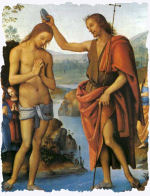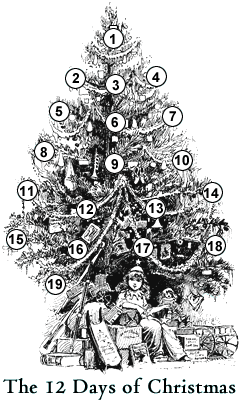Saint
Irenaeus.
Seeing
the daunting, Adversus
Haereses.
A prayer in the deep theology waves, with thanks from Cardinal Mercier;
www.christianforums.com › ... › The Chapel - Catholic
O Holy Spirit, Soul of my soul, I adore You.
Enlighten, guide, strengthen and console me.
Tell me what I ought to do and command me to do it.
I promise to be submissive in everything that You permit to happen to me,
Only show me what is Your will. Amen
Enlighten, guide, strengthen and console me.
Tell me what I ought to do and command me to do it.
I promise to be submissive in everything that You permit to happen to me,
Only show me what is Your will. Amen
+++++++++++++
A READING FROM AGAINST HERESIES BY ST IRENAEUS
The heretics do not
accept the Incarnation and so they remain in Adam who was conquered and cast
out of Paradise. They fail to see that, just as when we were formed in Adam the
breath of life was added to make a rational animal, so, at the end, the Word of
the Father and the Spirit of God were united to the same ancient
substance of Adam. This made man truly alive and perfect, capable of knowing
the perfect Father. It was done so that, as in the ‘animal man’ we all die, so
in the ‘spiritual man’ we might all be made alive. Adam at no time
escaped the hands of God, the Son and the Spirit, to whom the Father
said, Let us make man in our image and likeness. That is why, at the end, not
by the will of the flesh or the will of a man, but by the good pleasure of the
Father, these hands of God made the living Man, so that Adam might come at last
into the image and likeness of God.
The soul and the spirit
may be part of man, but they are certainly not the complete man. The complete
man is a mixture and a union: the soul, which has received the Spirit of
the Father, mixed with the flesh fashioned in the image of God. If you take
away the substance of the flesh, the shaped clay, and consider just the naked spirit,
what you are left with is not ‘the spiritual man’, but merely ‘the spirit
of a man’ or ‘the Spirit of God’. However, when this Spirit is
blended with the soul and united to the shaped clay, the result, thanks to the
outpouring of the Spirit, is a spiritual and complete man. It is
this, the complete man, who is made in the image and likeness of God. Thus the
Apostle, in his first letter to the Thessalonians, explains that the redeemed
man is this complete and spiritual man: May the God of peace sanctify
you completely, and may your whole being, spirit and soul and body, be
kept blameless at the coming of the Lord Jesus Christ.
The truth of all this was
shown when the Word of God became man. He assimilated himself to man and man to
himself, so that man, by his resemblance to the Son, might become precious to
the Father. For in times past it was merely said that man was made in the image
of God, but not shown, because the Word, in whose image man was made, was still
invisible. That is why man lost the likeness so easily. But when the Word of
God was made flesh, he confirmed both things: he showed the true image, when he
himself became what his image was; and he restored the likeness, making man
like the invisible Father through the visible Word.
+++++++++++++







 Today we celebrate the baptism of Christ in the Jordan. This is the second epiphany, or manifestation, of the Lord. The past, the present, and the future are made manifest in this epiphany.
Today we celebrate the baptism of Christ in the Jordan. This is the second epiphany, or manifestation, of the Lord. The past, the present, and the future are made manifest in this epiphany.







